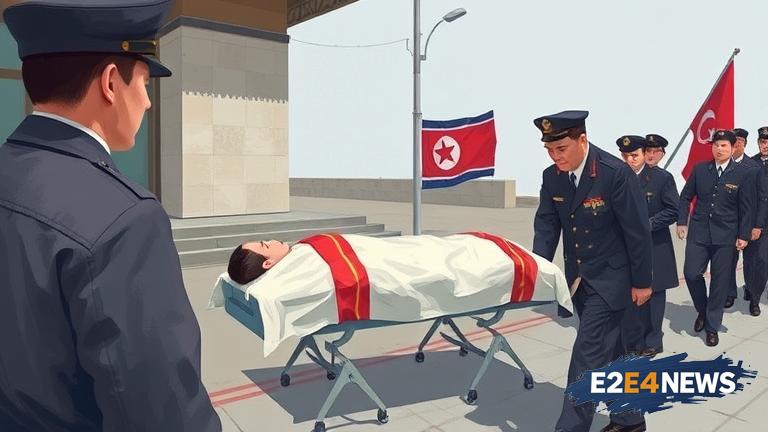The South Korean government has announced plans to repatriate the body of a North Korean citizen, in a move that could potentially ease tensions between the two nations. The decision comes amid a period of heightened tensions on the Korean Peninsula, with Pyongyang remaining silent on the matter. The body of the North Korean citizen was found in the Demilitarized Zone (DMZ) that separates North and South Korea. The exact circumstances of the citizen’s death are still unclear, but it is believed to have occurred in late July. The South Korean military discovered the body and has been working to identify the individual and determine the cause of death. The repatriation of the body is seen as a humanitarian gesture by the South Korean government, and it is hoped that it will help to improve relations between the two nations. However, the lack of response from Pyongyang has raised concerns that the move may not be reciprocated. The DMZ has been the site of numerous incidents in recent years, including the shooting of a North Korean soldier who defected to the South in 2017. The area is heavily militarized and closely monitored by both sides, making it a potential flashpoint for conflict. Despite the tensions, the South Korean government has continued to push for improved relations with the North, including through economic cooperation and cultural exchanges. The repatriation of the body is seen as a key step in this process, as it demonstrates a commitment to humanitarian values and a willingness to engage with the North. The move has been welcomed by human rights groups, who have long called for greater cooperation between the two nations on humanitarian issues. However, others have expressed skepticism about the potential for improved relations, citing the lack of response from Pyongyang and the ongoing tensions on the peninsula. The situation highlights the complex and often fraught nature of relations between North and South Korea, which have been divided since the end of the Korean War in 1953. The two nations have technically been at war ever since, although a ceasefire has been in place since 1953. In recent years, there have been numerous attempts to improve relations, including through summits between the leaders of the two nations. However, these efforts have been hindered by ongoing tensions and disagreements over issues such as denuclearization and economic cooperation. The repatriation of the body is a small but significant step in the process of improving relations, and it is hoped that it will help to build trust and momentum for further cooperation. The South Korean government has stated that it will continue to work towards improved relations with the North, despite the challenges and uncertainties that lie ahead. The move has also been welcomed by the international community, which has long called for greater cooperation and dialogue between the two nations. The United Nations has played a key role in promoting peace and stability on the Korean Peninsula, and has welcomed the repatriation of the body as a positive step. The situation highlights the importance of humanitarian cooperation and dialogue in promoting peace and stability, even in the most challenging and complex of circumstances. As the situation continues to evolve, it is clear that the repatriation of the body is just one small step in the long and difficult process of improving relations between North and South Korea. The international community will be watching closely to see how the situation develops, and whether the move will help to build momentum for further cooperation and dialogue. The repatriation of the body is a reminder that even in the most difficult of circumstances, there is always the potential for cooperation and progress. It is hoped that this move will help to pave the way for further cooperation and dialogue, and that it will ultimately contribute to a more peaceful and stable Korean Peninsula.





